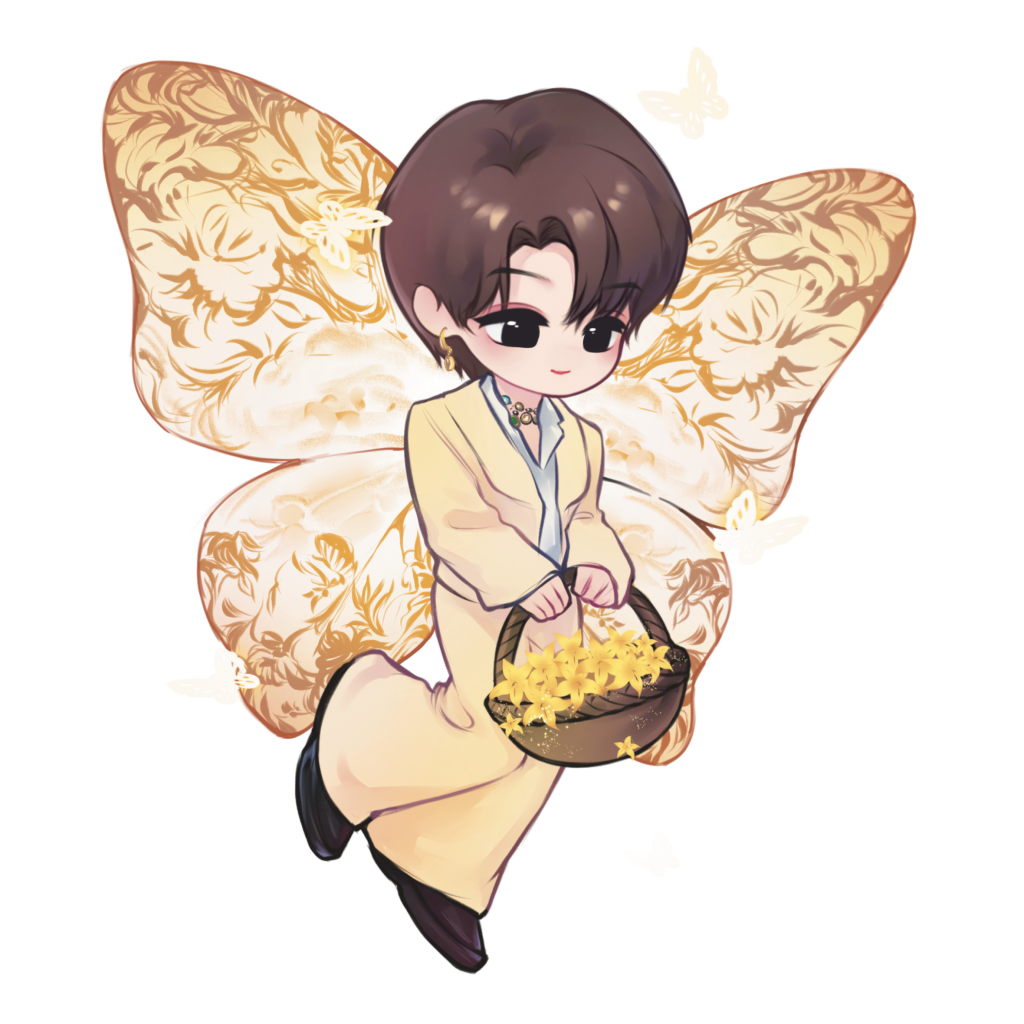Question:What kind of resonance did you get from studying women’s writing or making this documentary?
Director Shuting:
Actually, I think my resonance with Nüshu is probably a kind of persistence, because in the first year, I didn’t want to do it because I thought it was so boring. At first, I thought it was so boring, but I was really impressed by the fact that Mr. Li, who passed down Nüshu, would go to four different communities in one day and teach the residents how to write Nüshu, and he talked about it to every one of the people who came to him.
Ms. Hu is one of those people who, whether I’m working with her in the fields or in the mountains, she tells me that she just wants to pass on what her grandmother taught her.
Ms. He learned Nüshu after she retired. She started from scratch, she went to Beijing to find materials, and then she learned one word at a time. When she told me about this, she didn’t complain to me about her suffering, but she just said that she was very happy, and that she felt that Nüshu could make her proud, and that Nüshu could help her find a new sense of enjoyment in her retirement years, and I felt that this kind of optimism touched me.
Artist, Nüshu and Contemporary Art Creation Researcher, RuoXi:
When I first started to create artwork about Nüshu, I was actually moved by the mother-daughter duet song in the movie, because I felt that even though I didn’t understand the culture, or I couldn’t understand, I couldn’t understand the words at first, but this model, the communication between mother and daughter, between women and women, that kind of conveys this kind of emotion, is also what we modern women need. Then I saw a quote from Ms. Hu Meiyue that particularly struck a chord with me. She said that she didn’t think she was very smart and she wasn’t very good with words, but I would like to quote a sentence from Mr. Fei Xiaotong in Vernacular China, that people who grow up in a vernacular background may not be particularly educated, but that doesn’t mean that they are intellectually challenged. But it doesn’t mean that they are intellectually challenged, it’s just a matter of knowledge, not intellect. So I think the culture of Nüshu embodies this saying, that they are able to utilize their female intelligence in this particular female culture and carry it forward. Why Ms. Hu Meiyue felt that she was able to keep her mind off of her own thoughts while embroidering, is that there is actually a healing effect of psychology, so I will be able to capture artistic inspiration and theoretical research from the smallest details of life and their words. I would also like to add, there are so many people on the road to promote Nüshu, just to say that I have only come into contact with these people, but I also hope that more people will pay attention to, you say, more works, more practice can be in the Nüshu cultural heritage, so I hope that why I give my name to the tide, and I also hope that this movie can use a small force to let everyone to understand the culture of Nüshu.

